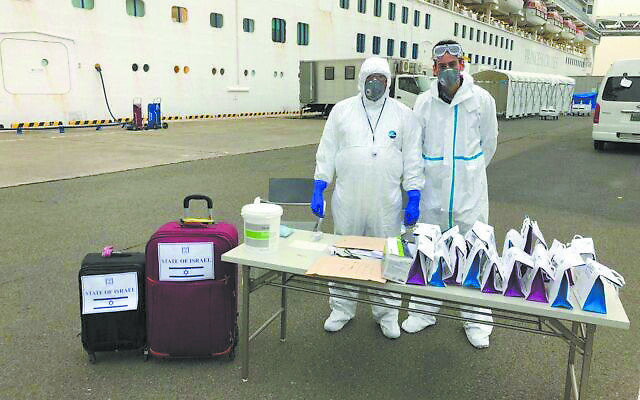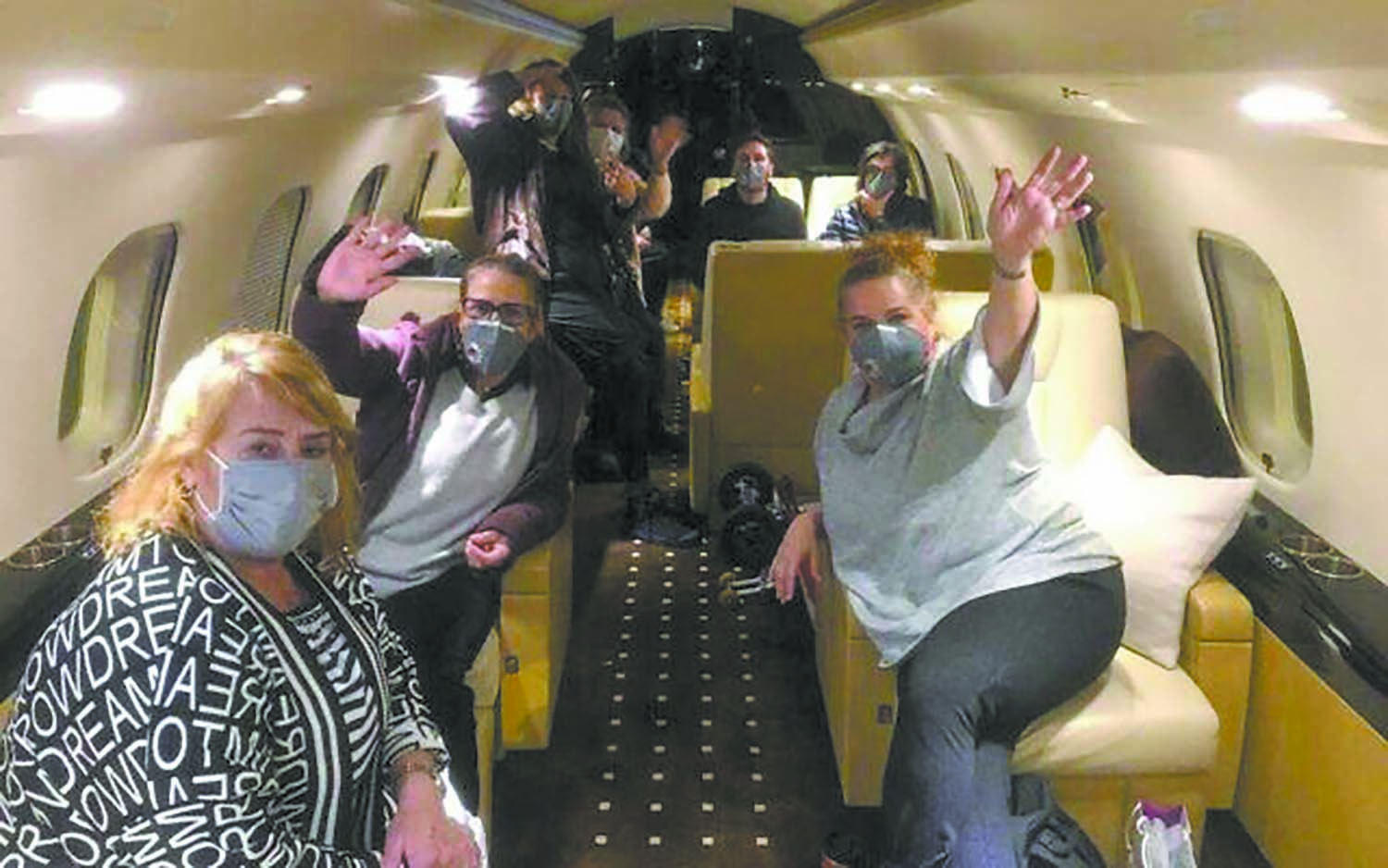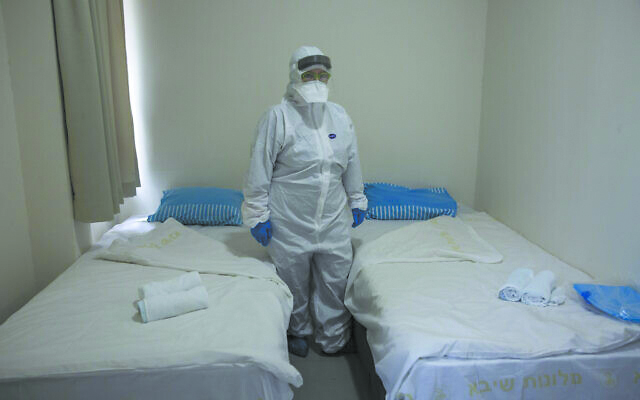Separating Coronavirus Myth From Fact
American and Israeli experts shared their thoughts on the coronavirus outbreak with the AJT.

Stoking fears around the globe, the coronavirus outbreak has continued to grow and tensions are rising alongside it. As of publication time, more than 2,600 have died globally as a result of the virus, most in the Hubei province of China, but also in Italy, Iran, South Korea and Japan.
Emory University’s Dr. Marybeth Sexton is an assistant medical school professor in the department of infectious diseases. She spoke to the AJT about the virus, recommendations for combatting it, and understanding the realities around the outbreak.
“There are a lot of viruses in the coronavirus family. Some of them cause what we think of as the common cold, and others are more serious like MERS [Middle Eastern Respiratory Syndrome] and SARS [Severe Acute Respiratory Syndrome],” she said. “This is kind of in the middle of those two groups, in the sense that, like MERS and SARS, it can cause life-threatening respiratory infection, … but the mortality rate is much lower than what we’ve seen with SARS and MERS.”
In discussing myths that she saw in the early days of the outbreak, Sexton explained that fear can overstate the reality of the disease.

“The risk assessment is that in the United States right now you are hundreds of times more likely to come into contact with somebody with the flu than this, … influenza is a significantly bigger threat than coronavirus here,” she said.
Sexton deferred to the CDC’s judgment when discussing the likelihood of seeing coronavirus or COVID-19 in the U.S.
“I agree with their assessment that it’s likely that we will see additional cases like this in the United States, especially because we know that person-to-person transmission is occurring,” she said. “A lot of people are pretty mildly ill with it, so you can have people who don’t rise to the level of seeking medical care or getting tested, which can allow something like this to spread.”

As for what steps Sexton would advise, she said: “The only thing I would recommend are the good, common sense things we recommend during respiratory virus season, … things like washing your hands, not touching your face and covering your cough or sneeze and trying to avoid traveling if you are sick.”
On the topic of ongoing research, Sexton said that there were two avenues: vaccines and treatment.
“There’s some research on vaccine development that has gotten a lot of interest, and that’s important when you have something which can spread internationally,” she said. “Typically for most viral infections, treatment is supportive care — basically giving support until one’s own immune systems can take care of the problem — but there may be some anti-viral medications that are effective.
“There is also research about how to best diagnose it quickly and effectively, which is important from an infection control and public health perspective,” she added.
Among the stories closely monitored as part of the outbreak is that of the Diamond Princess cruise ship off the coast of Japan that was quarantined for nearly two weeks. Its passengers included Americans, who recently returned home against the CDC’s recommendations, according to The Washington Post.
Also on the ship were 15 Israeli travelers, 11 of whom returned home Feb. 21 under the care of Sheba Medical Center, Tel HaShomer, in Ramat Gan. That day also marked Israel’s first case of the virus, as one of the passengers tested positive for COVID-19. The woman in her 70s has not yet shown any symptoms and is the wife of another patient being treated in Japan along with the other three Israelis.

The passengers had previously pleaded to be released from the quarantine aboard the ship and could be seen on video singing “Am Yisrael Chai,” on a bus to the airport in Japan.
Professor Elhanan Bar-On, director of Sheba’s Israel Center for Disaster Medicine and Humanitarian Response, is heading up the medical team dealing with the quarantined patients.
“After the government of Israel gave us the mission to host and care for our citizens returning from the Diamond Princess in Japan, Sheba Medical Center will provide for all of their medical and personal needs during their stay. We are doing everything we can to prevent the spread of COVID-19 in Israel,” he said.
The location of the quarantine is in an isolated complex, separate from the central hospital campus and features a small outdoor area, allowing patients some space outside of confined rooms, according to professor Arnon Afek, deputy director general of Sheba Medical Center. As for the first Israeli case of coronavirus, he explained that preparations began weeks ago to combat any spread.

“Sheba Medical Center had already prepared itself for any potential outbreak of COVID-19 weeks ago, so if anyone becomes ill, we are well prepared to deal with it. It is important to note that nearly 80 percent of COVID-19 patients around the world have had a non-complicated version of the virus, with symptoms not that different from the flu, which have been treated accordingly,” Afek said.
On Feb. 23, the Health Ministry suggested that Israel may close its borders to noncitizens to combat the spread of the virus. While the statement on its website was removed within hours, it came shortly after a plane from Seoul, South Korea, was turned around with only Israeli residents permitted to disembark.
The decision followed the news that about 200 students were ordered to quarantine themselves following contact with a different group of South Korean visitors who may have been exposed to the virus. As of publication, Israel’s borders remain open to travelers.



comments